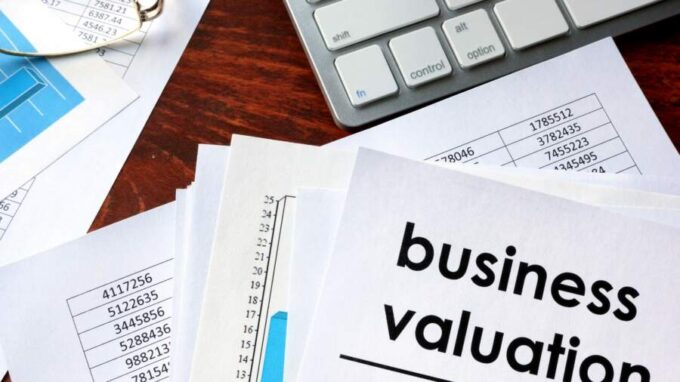A business valuation is a measurement of a business’s worth or value. But how a business is measured depends on the type of valuation needed. Some valuations that are acceptable for buying or selling a business are not suitable documents to be used for litigation purposes. The circumstances leading to the decision to hire a professional business analyst will strongly determine the type you need.
There are 3 common standards of value used in small business valuation: fair market value, investment value, and intrinsic value. But first, it’s important to understand a few steps that happen before the valuation itself actually begins.
1. Determine The Scope of Your Valuation

According to Jason Brice, the first step in creating a typical valuation report starts with asking yourself why you need a business valuation. A business appraiser is able to identify the type of report that is needed and what to include in it:
- The date on which the business was valued
- The standard of value
- The premises value
- The purpose of a valuation
Answering these questions will determine what kind of valuation you will need as well as how long it will take. A business valuation can be performed for all or part of a company, or for a number of shares held by a shareholder. For example, you can get a business valuation to determine the value of a percentage of shares held by an estate if a shareholder has passed away.
The date on which the business is to be valued is another very important factor. What was going on in the world and in the markets in that particular industry can have a tremendous impact on what the analysis will fine. For example, in 2024 multiple industries were shut down due to the global pandemic, so the valuation of a cruise line company before and after March 2024, for example, would be significantly different.
2. Acquiring The Required Documents

The next step is to provide the required financial statements and information necessary for a defensible business valuation, such as the income statements and balance sheet, to your analyst. The business brokers from Neumann & Associates, LLC highly recommend that you have 3-5 years’ worth of these documents ready and available for your business valuation. Other documents that you may need to provide include:
- Your corporation’s articles of incorporation, if applicable
- Partnership agreements, if applicable
- Your LLC’s operating agreement, if applicable
- Tax returns
- Projected financial statements
- Franchise agreements, if applicable
- Leases
- Loan covenants
- Private arrangements made with stakeholders
- Any buy-sell agreements
- Any contracts
- Business operating procedures
3. Adjusting The Financial Statements

Although the analyst looks at the income statements and balance sheets, they have to account for the fact that businesses can choose for themselves how and what they recognize as a business asset, and how they get reported. In order to create a valuation that compares apples to apples rather than apples to oranges, and to ensure clarity across different types of accounting practices, historical financial statements need to be adjusted in order to develop a better more clear connection between the business is assets, expenses and the amount of revenue that the assets are capable of producing.
There are a number of reasons why it is important to adjust the financial statements in the valuation process. First of all, looking at the past and how much revenue is generated under normal operating conditions can help to predict future cash flows. It also allows an adjustment for accounting practices that do not follow the Generally Accepted Accounting Principles (GAAP).
This is not meant to make any forecasts about the future performance of the business. Rather it is to get an accurate picture of how the business has been running and what their potential future economic benefits will be.
4. Choose The Best Business Valuation Method

Now that the financial statements have been adjusted it’s important to figure out what valuation method your appraiser will use. Again, this is going to depend on the purpose of your business valuation. If it’s going to be used for litigation purposes then it will need to meet certain requirements that make it suitable to be used in a courtroom.
Thankfully, there are many ways in which a business can be valued. As mentioned earlier, there are 3 common standards of value: fair market value, investment value, and intrinsic value. A standard of value is something that has an agreed-upon worth in an economy. Whether it’s the krone in Norway, the U.S. dollar, or the Euro in France, each country has a form of currency. Gold has often been used as the standard of value, but historically other precious metals have been used, such as silver. Without these standards of values, transactions would be a nightmare and the economy would always be constantly unstable because prices would not be set relative to the standard of value. Most people would think it’s outrageous for a house to cost the same as a purse, so an established standard of value makes it easier for transactions to occur between individuals and companies.
Valuating a business for its fair market value determines how much the business would sell for if both the buyer and the seller have complete knowledge of the facts and are under no constraints. Another way of expressing it is that the fair market value is what the business’ cash equivalent is. By contrast, the investment value is the worth of a business to a hypothetical average investor. Rather than look at the fair market value of a business, the intrinsic value is what a business is actually worth, such as in stocks.
5. Write Formal Conclusions

The final step is arriving at a determination of value. A comprehensive value report explains what valuation method was used by the appraiser, and assumptions about the future of the company.
The business brokers from Neumann & Associates, LLC, the general timeline for completing a business valuation is 3-6 weeks. Speak to a professional business appraiser if you have questions about the worth of your business.








